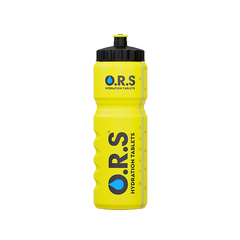What Stresses Do Ultra-Marathons Place On The Body?

It’s prime marathon season, as the worst of the winter weather is now hopefully behind us, and we are yet to see the warmth of summer. This provides an ideal temperature for running that is comfortable but not so hot that it heightens the risk of overheating and dehydration.
Standard marathons involve running a distance of 26.2 miles, but this huge challenge is not enough to satisfy some runners. For those who seek the ultimate challenge, an ultramarathon is their goal. This calls for almost superhuman levels of fitness, stamina, and endurance.
Here’s a look at what ultramarathons involve, and what stresses they place on the body.
What are ultramarathons?
Ultramarathons are typically any race that is longer than the standard 26.2 miles. They can be run in a single day, usually over a distance of 31 miles) or they can be a multi-stage event over hundreds of miles.
Ultramarathons often involve more challenging terrain, such as boggy uplands or sand dunes, whereas standard marathon routes are usually limited to roads or other paved surfaces, and are mainly on the flat.
What strains do ultramarathons place on the body?
Running a standard marathon places great demands on the body, and it requires a disciplined approach to training and nutrition to prepare. However, an ultramarathon is a whole new league. It’s essential for athletes who are preparing for such an extreme challenge to understand these stresses.
Muscular and skeletal stress
The repetitive action of running, particularly on uneven terrain, puts significant stress on the muscles, joints, and bones. This can lead to inflammation and increase the risk of stress fractures. Over time, this can lead to issues such as knee pain, shin splints, or even osteoarthritis.
Dehydration and electrolyte imbalance
One of the most critical factors in ultra marathon performance is the management of hydration and electrolyte levels, particularly in warmer conditions. Sweating is the body’s natural cooling mechanism, and when we sweat we not only lose fluids but essential minerals such as sodium, potassium, calcium and magnesium, known as electrolytes.
After a certain level of depletion, the athlete may be at risk of muscle cramps, fatigue, or even low blood sodium levels (hyponatremia),which can be life threatening. Therefore many athletes take oral electrolyte tablets to optimise levels during an extreme event and als to recover afterwards.
Psychological stress
Running an ultramarathon is a test of mental as well as physical endurance. The extreme stress can lead to elevated cortisol levels, which over time can lead to fatigue and mood swings.
The Hardest Geezer
One of the most widely reported ultramarathon achievements was that of Russell Cook, AKA “Hardest Geezer”. 27 year old Cook, from Worthing, West Sussex, hit the headlines when he completed a run of the entire length of Africa. He set off from South Africa’s most southerly point of 22 April 2023, and crossed the finish line in Tunisia 352 days later on 7 April 2024.
The BBC reports that Cook covered a distance of 10,190 miles, sometimes in extreme conditions, which is the equivalent of running 389 marathons back to back. In the process, Cook raised more than £944,000 for charity. In the past, Cook has struggled with his mental health and battled addictions to drinking and gambling.
As if that wasn’t enough, Cook has announced that he will be taking part in the London marathon on Sunday 21 April, as part of his work with the Running Charity. He will be helping to pace some of the younger marathon runners. He has also announced that he will be taking part in the Sahara Marathon next year.
Cook said: “In terms of my next big challenge, it’s going to be a hard one to top. And I don’t really want to be away for another year. There are a few young people running, so I’m going to pace someone if they want to do a sub four-hour or something. But I ain’t got a fast one in me, I won’t lie.”
Keen athletes will be following Cook’s progress with interest to see how well he manages to recover from such a remarkable and extreme achievement.

